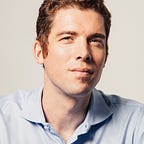End Times
Bioengineering the End Times
New technologies like gene editing could vastly improve human life. They also just might end it.
Asteroids, supervolcanoes, nuclear war, climate change, engineered viruses, artificial intelligence, and even aliens — the end may be closer than you think. For the next two weeks, OneZero will be featuring essays drawn from editor Bryan Walsh’s forthcoming book End Times: A Brief Guide to the End of the World, which hits shelves on August 27 and is available for pre-order now, as well as pieces by other experts in the burgeoning field of existential risk. But we’re not helpless. It’s up to us to postpone the apocalypse.
 In the darkened ballroom of the Mandarin Oriental Hotel in Washington, D.C., some of the finest minds in government are debating how to stop the end of the world. They’re here to take part in a daylong tabletop exercise put on by the Johns Hopkins Center for Health Security, an academic nonprofit focused on biosecurity. The participants — which include former Senate majority leader Tom Daschle and Dr. Julie Gerberding, who headed the CDC during the George W. Bush administration — are playacting the role of presidential advisers convened to respond to a fictional outbreak of a new virus.
In the darkened ballroom of the Mandarin Oriental Hotel in Washington, D.C., some of the finest minds in government are debating how to stop the end of the world. They’re here to take part in a daylong tabletop exercise put on by the Johns Hopkins Center for Health Security, an academic nonprofit focused on biosecurity. The participants — which include former Senate majority leader Tom Daschle and Dr. Julie Gerberding, who headed the CDC during the George W. Bush administration — are playacting the role of presidential advisers convened to respond to a fictional outbreak of a new virus.
